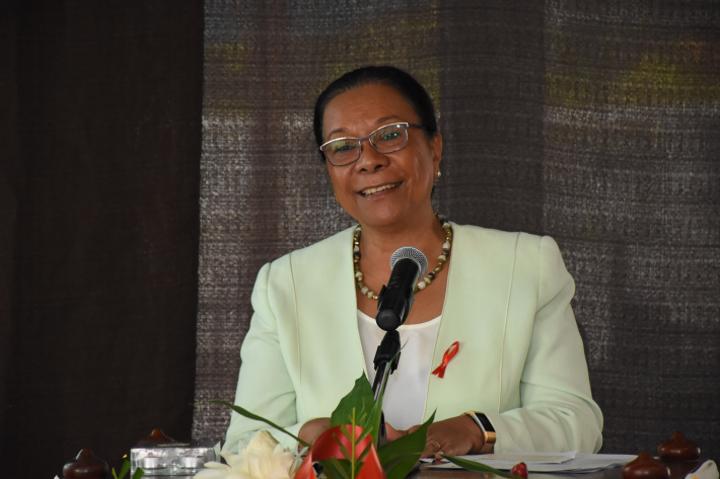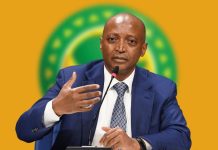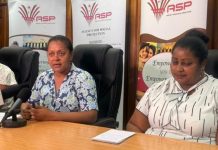Africa-Press – Seychelles. A group of thirty individuals, including those who have passed away, have been recognised by the National Aids Council (Nac) for their contributions in the fight against HIV/Aids since the virus was first detected in the country in 1987.
The first batch of recipients, including nine orgaisantions, who were recognised for their work and contributions during the period 1987 to 2010, received their token of appreciation and certificate from the Minister for Health Peggy Vidot in a short ceremony held at the Coral Strand Hotel yesterday afternoon to celebrate World Aids Day under the theme ‘Equalise: action to eliminate inequalities’.
It was sad to note that only seven among the recipients and organisations were present to receive their tokens of appreciation.
Minister Vidot was also among the recipients who received the recognition for her work in the fight against the virus from the early 2000s before she became a minister. There will be other recognition awards in the future for other persons and organisations who have also made their contributions to the fight against the virus.
Present at the ceremony were the Public Health Commissioner, Dr Jude Gedeon; the chief executive of the Health Care Agency, Dr Danny Louange; the representative of World Health Organisation (WHO) to Seychelles, Dr Rex Mpazanje; the chairperson of Nac, Dr Agnes Chetty; the chief executive of Nac, Dr Anne Gabriel; Nac board members; senior health officers and other guests.
Delivering a few words of appreciation, Minister Vidot said the country was happy and also values and applauds the efforts and contributions the different groups of people have put over the last 35 years in the fight against HIV/Aids.
She added that amid some winnings and some losses against the virus, their efforts have paid off in ensuring, in the spirit of ‘Equalising’, treatment is available and people in the country are receiving the treatment.
Minister Vidot noted that her ministry is taking stock of the country’s response to HIV/Aids to better put it under control.
She added that the ministry has a lot of supporting and preventative programmes to contribute to the fight against HIV/Aids and that will leave no one behind.
She said that the ministry will do its utmost to ensure that resources are made available to respond to HIV/Aids.
She called on very one of us to continue to play our role in the fight against the virus because as country, we can reach the UNAids target of zero HIV by 2030.
In her opening remarks, Dr Chetty said that since the detection of the virus 35 years ago, at a time when treatment was not available and HIV was an almost inevitable fatal disease, the situation today has changed where effective prevention and treatment interventions are readily available.
She added that at the end of last year, more than 800 persons living with HIV were receiving lifesaving treatment.
She said that after more than 40 years, there has been remarkable progress in the fight against HIV/Aids where some 30 million people globally are receiving HIV treatment along with many effective tools available to help prevent HIV transmission.
Dr Chetty noted though that with our successes notwithstanding, important challenges still remain among which include over 100 people living with HIV who are not engaged in care services and who are not receiving treatment.
She said that despite progress, stigma and discrimination unfortunately, still linger.
She said that the country in 2021 at the United Nations General Assembly committed with the rest of the world to ending inequalities and we are still on track to end Aids as a public health threat by 2030 if we take bold actions beyond the Ministry of Health to address the root causes that drive the HIV epidemic .
One of the recipients, Reginald Hoareau, said he was very happy to have been recognised for his tireless effort to fight against the virus and stigmatisation which are still going on until today, even though he was not expecting to be awarded for the work he had done and is still doing as he did it with his heart and for a good cause.
He called on the members of the public to study the UNAids’ theme carefully before they start to bully someone else who they consider different and to also have a sense of compassion for others so that they can also enjoy their life in peace.
Mr Hoareau, who is now a 45-year-old married father, was diagnosed with the virus at the age of 19 years old. He called on fellow patients like him and who have dropped out of their antiretroviral treatment to continue to do so as it will help them to live a healthy life.
For More News And Analysis About Seychelles Follow Africa-Press






